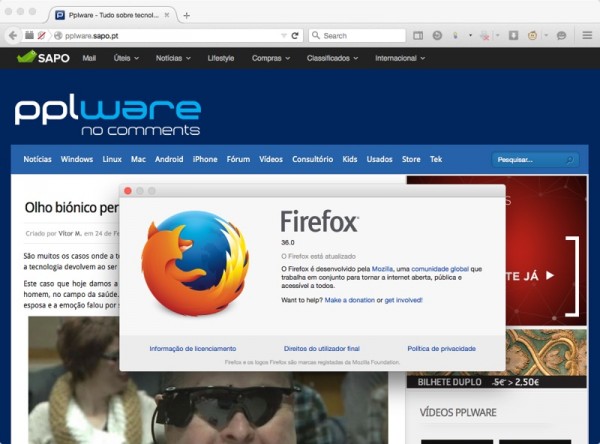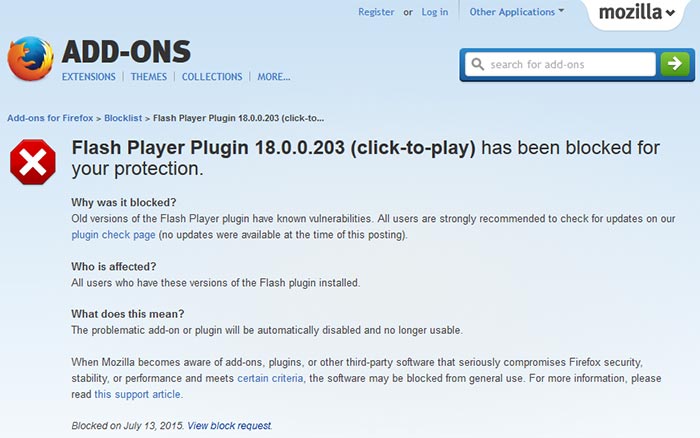Os browsers são já parte fundamental dos nossos computadores. Muita da informação e dos dados que necessitamos estão na Internet e é com estas ferramentas que lhes acedemos.A Mozilla tem estado na linha da frente no que toca a desenvolvimento e o seu browser, o Firefox, consegue ser uma das escolhas mais usadas na Internet.
Depois de uma
versão 35 que trouxe grandes novidades, esta nova versão agora lançada, a versão 36, é mais comedida no que mostra, mas tem muito trabalho feito onde a vista não alcança.

A nova versão do Firefox, que saiu agora para os utilizadores, tem novidades de grande interesse para todos os que se dedicam a avaliar as qualidades deste browser, mas não de forma directa e bem visível.
São novidades que estão bem enraizadas no núcleo do Firefox e que vão dar a todos os utilizadores um acesso mais rápido e mais seguro à Internet.
Falamos da chegada ao Firefox do novo protocolo
HTTP/2, que foi recentemente terminado e disponibilizado para ser usado por todos os que criam ferramentas para a Internet.
Esta novidade vai dar ao Firefox e aos seus utilizadores um acesso muito mais rápido aos conteúdos, garantindo que toda a informação circula de forma muito mais protegida e ao mesmo tempo também mais optimizada.
Mas a Mozilla reservou também para esta versão a chegada de uma pequena novidade, relacionada com a sincronização entre diferentes versões do Firefox, sempre com recurso à conta do utilizador.
A partir de agora passa a ser possível sincronizar também os tiles que os utilizadores tiverem bloqueados na página de abertura do Firefox.
Esta opção vem juntar-se a todas as restantes que estavam já disponíveis para sincronização e que permitem ao utilizador manter as suas sessões e configurações entre os diferentes Firefox que tiver a usar.

Para além destas duas novidades de peso, o Firefox 36 tem ainda
outras melhorias, mais viradas para a correcção de problemas e de alguns bugs.
Destacamos uma melhoria que pode levar alguns utilizadores a terem alguns problemas na navegação em páginas HTTPS e que é o fim do aceitar de certificados com chaves de 1024 bits. De agora em diante apenas as de 2048 e superiores são suportadas pelo Firefox.
Há ainda a correcção de um problema que estava a afectar os utilizadores do Gmail e do Facebook e que levava a que os acessos às sua contas pedissem constantemente novas autenticações.
Tal como acontece sempre, esta nova versão já deve estar disponível para actualização no Firefox. Instalem-na e vejam o que existe de novo. Como referimos não existe muita coisa visível, mas este browser está novamente no caminho do sucesso.




 Likes:
Likes: 





 Responder com Citação
Responder com Citação







 Mozilla has
Mozilla has 









 Mark Schmidt @MarkSchmidty
Mark Schmidt @MarkSchmidty  ".
".


Bookmarks